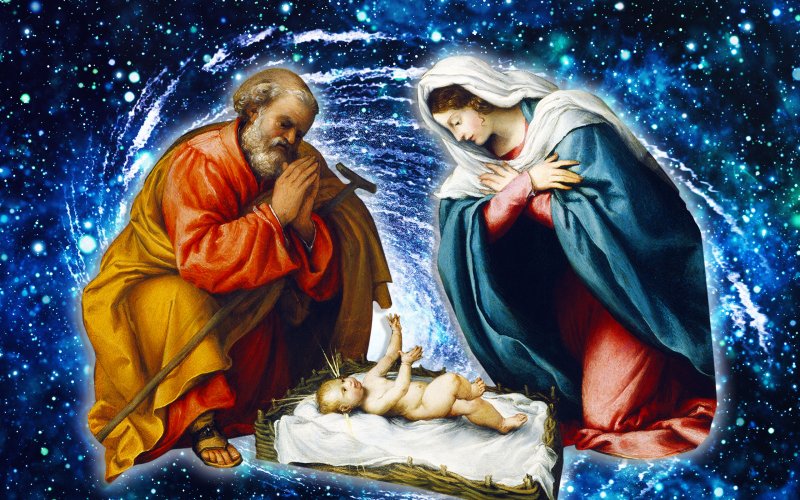It’s Christmas, a celebration of the birth of Jesus to Mary (his mother) and Joseph (in modern parlance, his stepfather) in Bethlehem. For Christians this event is a celebration not only of the birth of the Son of God, but also of God’s merciful salvation of the human race.
Nativity scenes, crèches, and children’s plays around the globe will tell the traditional story of how Mary and Joseph undertook the arduous journey to Bethlehem to participate in a census, how they were turned away from an inn, and how the king of kings was born in a stable, laid in a manger, and visited by a cluster of shepherds and three foreign kings.
That story, in its entirety, is not contained in a single book of the New Testament. It is a composite image crafted out of the nativity stories of the Gospels of Matthew and Luke and augmented by later Christian tradition, artwork, music, and interpretation.
A number of the details that make it onto the canvasses of Renaissance artists, for example the “three kings,” aren’t in the Bible at all. We assume that there are three visitors because they bring three kinds of gifts (gold, frankincense, and myrrh). But the Bible doesn’t actually specify their number.
We think that the magi (as they are called in the New Testament) are kings because of later guesswork. Dr. Brent Landau, author of The Revelation of the Magi, told The Daily Beast that the idea that there were three kings comes to us from the imagination of early Christians.
“Matthew’s story about the Magi does not imply that these mysterious visitors are kings; Matthew either regards them as magicians/astrologers or Zoroastrian priests. But early Christians noticed passages like Psalm 72:10-11, about kings from far-off lands rendering tribute to the King of Israel, and wondered whether this might have been a prophecy about the Magi. Tertullian in the third century describes the Magi as ‘almost kings,’ and almost two hundred years later, Augustine flatly calls them kings. From there, the belief became commonplace.”
All of which means that the magi were wise men, likely schooled in astrology or even Zoroastrianism. Sorry to ruin the carol.
Read the full story at the Daily Beast.







